During a Spanish course in Spain, Annika Elwing fell in love with music teacher Jesús. Annika stayed in Spain and today she lives in Seville with Jesús and their 2-year-old daughter Disa. During her years in Spain, together with a large Spanish family, Annika not only got to know the country, but also the culture and traditions.
We took the opportunity to ask Annika a bunch of curious questions about culture clashes, family life and raising children in Spain. In addition, we have of course asked for some insider tips for those who want to visit Seville as a tourist. If you want to continue following Annika's life in Spain, you can check out her blog. Casa Annika.
Table of contents
Can you tell us a bit about yourself? Where do you come from and how do you live today?
I grew up in a house by the forest outside Lidköping in Skaraborg and always thought that I would never want to live in the city, or in an apartment. Now I live in an apartment in Seville, Spain's fourth largest city. It's the most beautiful city I know, but if everything goes well with work, I'll move with my Spanish partner and our daughter to the mountains in the Sierra de Aracena, near the border with Portugal, after the summer. In Sweden I worked as a reporter for a local newspaper, now I'm teaching Swedish as a second language and translation.
How did you end up moving to Spain and Seville?
I had been volunteering in Bolivia for nine months. I didn't know more than three words in Spanish when I arrived and learnt the language the hard way, by listening and being forced to speak, as I couldn't communicate until I learnt Spanish.
It was more difficult than I could have imagined. I learned, of course, but missed the grammar, so at the end of the year I decided to take a Spanish course for the next trip to Bolivia that I was planning. After a couple of months in beautiful Ronda in Andalusia, I met Jesús, a music teacher from Seville. We moved in together, I stayed in Spain, and we had our two-year-old daughter Disa.
What cultural differences do you perceive between Spain and Sweden in terms of family life?
In Spain, the family is very important. For cultural and practical reasons, Spaniards rarely move far from their families. They see each other often, talk on the phone, have lunch together at weekends. Spanish family reunions are the most fun you can have. Everyone comes to eat and drink and dance together, from the oldest to the youngest members, age differences don't matter.
The close contact is probably also related to the fact that the family is a necessity to make life work. Spain lacks much of the Swedish safety net and the Swedish opportunities for an independent life. For better or worse.
Here everyone has to take care of each other. Grandparents take care of the grandchildren while their parents work, childcare is very expensive and inadequate, and children and grandchildren take care of the elderly, often living with them when they cannot manage on their own.
Leaving an elderly family member alone is unthinkable. In the wake of the economic crisis, new extended families have been formed, in many cases whole families with children living on the pensions of the elderly because they have no other income. In Sweden, people have the opportunity and endeavour to live independently, which contributes to too many single households.
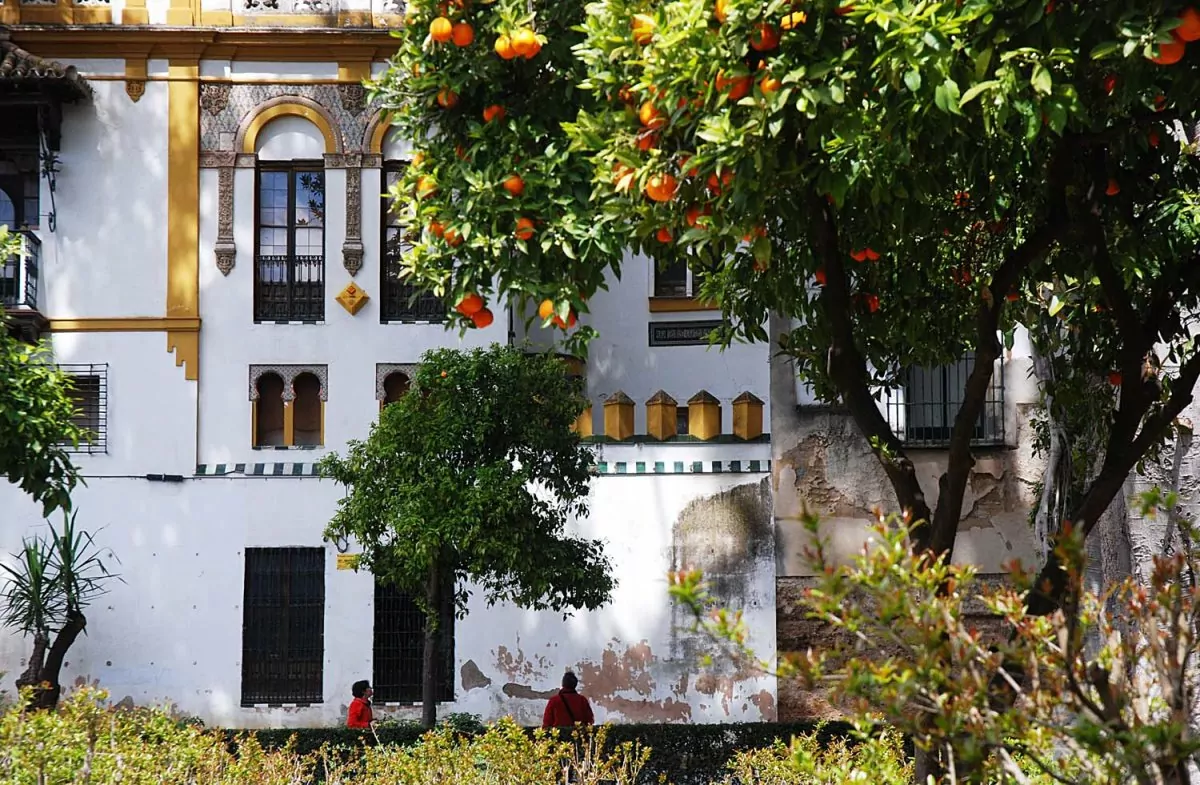
Are there differences in the way children are raised in Sweden and Spain?
It's quite a difficult question for me, as I moved to Spain before any of my friends had children, I find it hard to compare. I can only talk generally about how I feel in Sweden and compare it with what I feel in my big city in southern Spain.
In Sweden, it is in some ways very easy to have children. The family gets financial help with child benefit and cheap childcare, for example. There are lots of fun activities for parents and children, which probably has to do with an infinitely long parental leave compared to Spain's four months.
At the same time, it seems quite difficult to be a parent in Sweden. There is so much to get right, so many books to read, so many articles and research reports. Sugar bans, organic food, organic toys, safety. Many invisible rules to be followed.
And all those times! The children who have to eat and sleep exactly on time, and activities and visits have to be adapted accordingly. In Spain it is more relaxed and much more flexible. In Sweden, life seems to be very much adapted to the children while here it is the opposite.
In Sweden, we often distinguish between children's activities and adult activities, but here the children go almost everywhere, and everywhere they are welcome. Spaniards are helpful, as a parent you get help with the pram on the bus, people leave seats. The children are seen because everyone you meet; teenage boys, older people, people in the bus queue, talk and joke with them. I like that!
When we were in Sweden for a month last year, I felt that my child was invisible, people didn't look at her, didn't pretend she existed. I realise that not everyone thinks she's the most amazing thing in the world, just because I do, but the contrast with how children are treated in Spain was uncomfortably clear.
I feel that children in Spain are often overprotected. And children aren't allowed to get dirty, so play is limited - no splashing in puddles, for example, but it's still difficult because children aren't allowed to go outside when it's raining, not even during school breaks.
Children are dressed up in fine, delicate clothes, and stern reprimands are common. There is a strong emphasis on education; homework, tests and grades are given to children very early on, and even the youngest children in pre-school are made to sit in desks and learn things instead of having free play.
What is the best thing about living in Spain?
Getting to know the Spanish culture. In general, living in another country, even for a little while, is instructive. Your own culture mixes with the new one, you take from your own norms and traditions and mix them with those that seem better in the new country. At the same time, there is a sense of rootlessness, of not quite belonging anywhere.
Spain is an amazing country to experience. I love the food, the quality and variety of traditional southern Spanish food. The relaxation of not planning everything far in advance, the spontaneity of going to the beach or having a picnic with friends the next day. All great places to visit. Spain's history is eventful and the landscape mountainous and varied, wherever you are there is too much to visit nearby. Health care is great and a great reassurance.
Do you miss anything from Sweden and if so, what?
Haha, I miss the whole country in turns! I miss the forest, the smells, the seasons, the nature. The friends. I miss Swedish libraries, newspapers, Thai food, Swedish new potatoes, Swedish apples and Swedish strawberries. Picking blueberries. Flea markets, they don't exist here either.
I miss the idea of equality. I miss decent working conditions that are met, a salary that you can travel for and save money from, and opportunities for jobs and training. In Spain, with its economic problems, there is a great deal of hopelessness and pessimism, and workers are being exploited beyond belief.
What are your top tips for tourists visiting Seville?
Don't go here in the summer, no human can handle this heat. Avoid tapas bars and restaurants with English-language menus; go to the ones where Spaniards flock. Don't try to eat lunch or dinner according to Swedish times and remember that most things close during the siesta.
Seville is the most beautiful city I know. I often wish I came here as a tourist for the first time again to discover everything anew. Walk, that's the best way to experience the city. Get lost in the old Barrio Santa Cruz neighbourhood narrow alleys, end up in small squares with colourful tiles, orange trees and rippling fountains, see where Don Juan bragged about his conquests and step on the grave of his real predecessor.
Visit wonderful, jungle-like María Luísa Parkand take your time because it's a special park. There's the fascinating Plaza de España with tile motifs from each province, and other buildings from the 1929 Iberoamerican Exhibition.
Walk under the palm trees along the river, see the Torre del Oro. Cross the Triana Bridge, visit the market and the museum where the Inquisition Court was located, and stroll the streets of the neighbourhood famous for its tile painters, bullfighters and flamenco artists. Experience flamenco where flamenco should be experienced - in Seville.
Eat ice cream at La Fiorentina. The ice cream here is not as famous as the Italian one, but just as good. Visit the cathedral where Columbus is buried and the monastery/cultural centre where he stayed while planning the first voyage to the Americas, and don't miss the Real Alcázar, a stunning Mudejar palace and gardens that anyone who has visited the Alhambra in Granada will recognise.
Visit small private palaces and relax in a hammamet Aire de Sevilla with its scents and candles. Walk around the tapas bars and try different dishes. The food here is well-prepared and cheap, not at all like in Madrid and the north. Another tip is to go here in April when the big April holiday is held. Seeing all the fantastic dresses, hearing the sevillanas and watching the horses is an experience you won't forget.
Finally, a question we ask everyone we interview: What is your dream destination?
A long journey in South and Central America. First I would visit friends in Bolivia, then see the northern jungle-covered part of the country. After that I will take the rest of the continent. I would like to see an active volcano during the trip, as well as a paradise beach with hammocks and warm, clear water for snorkelling. I also want to experience a long journey through Africa. Take the ferry across to Morocco and then head south by car, bus, train ...
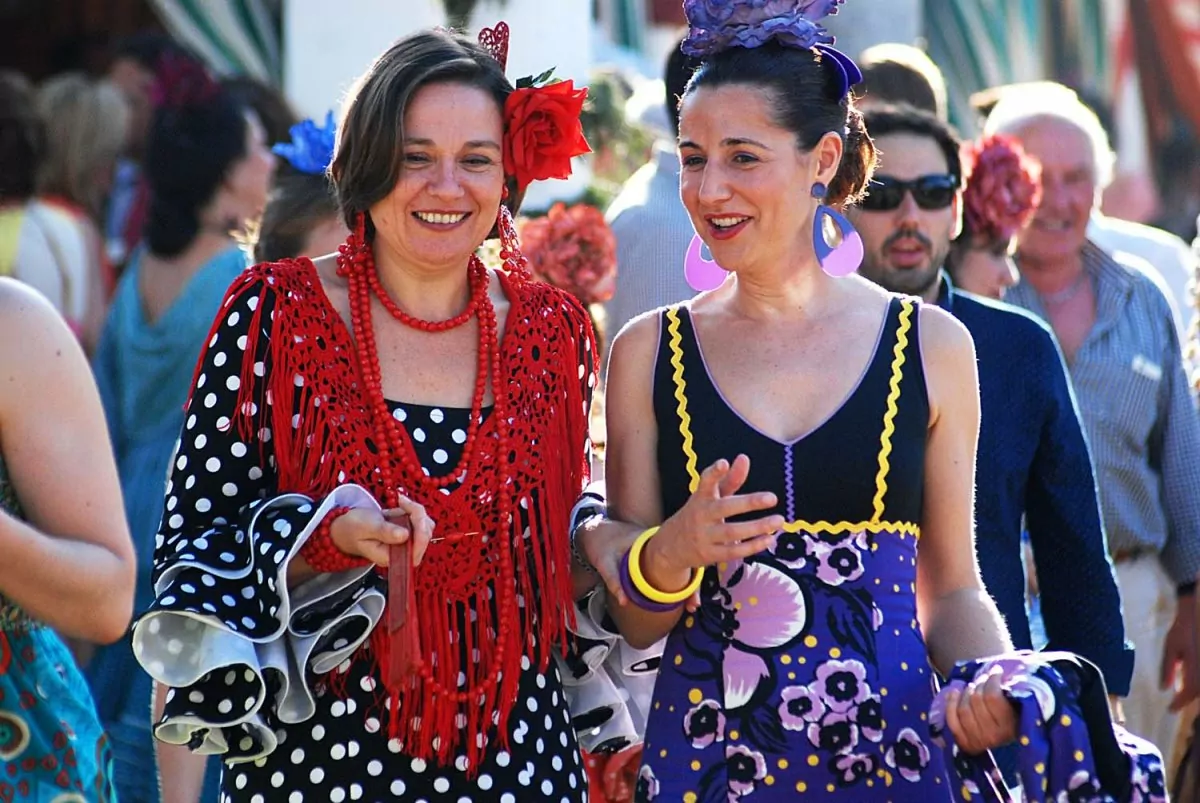
Thank you Annika Elwing for sharing your experiences and thoughts!


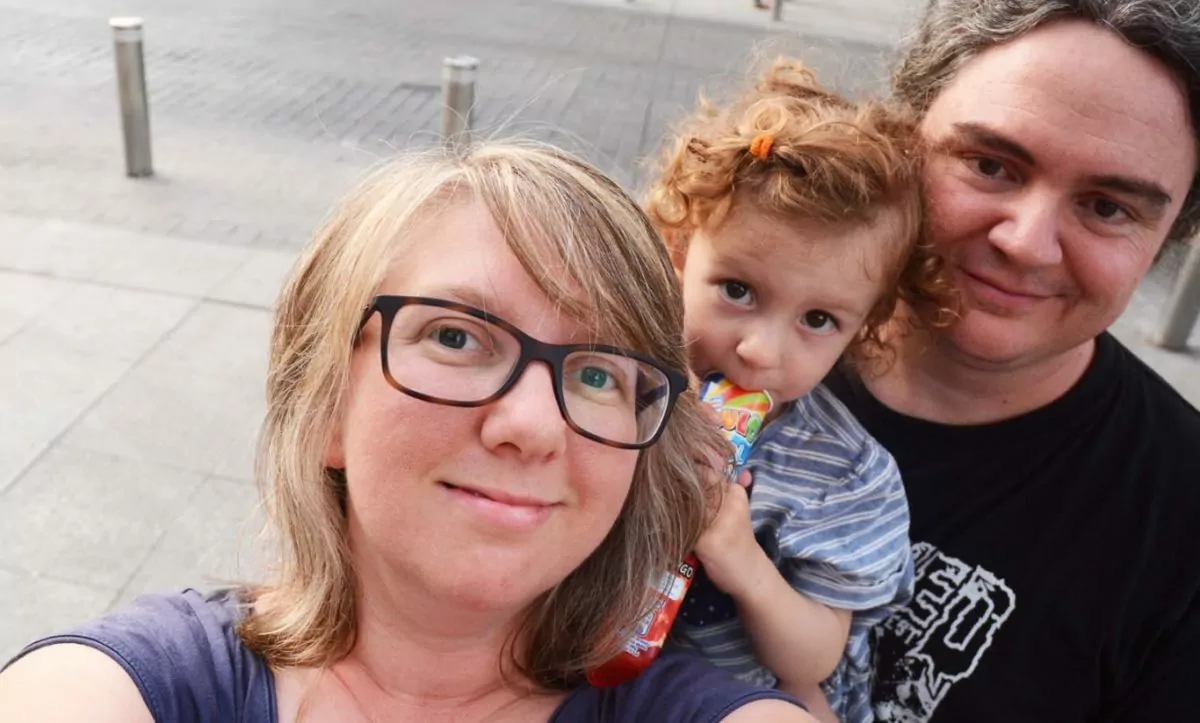






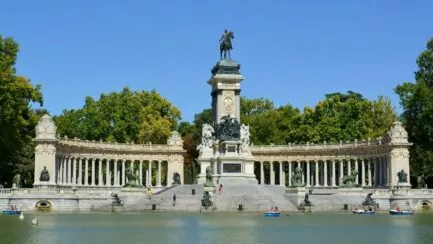
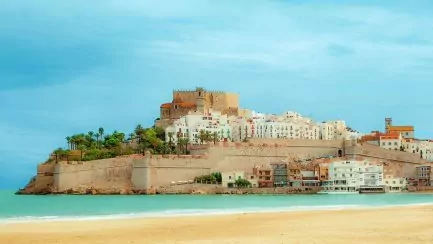
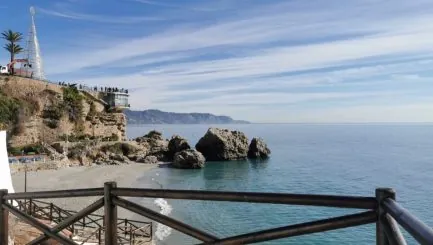
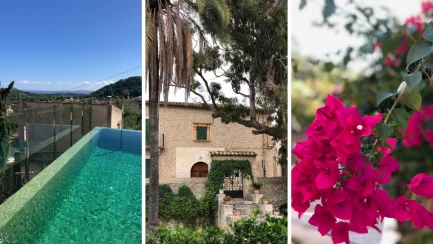



Matts Torebring says:
Interesting post! I could guess the answer to several questions. Nice to know a little more.
02 July 2016 - 6:13
Diana'sDreams says:
Fun reading hugs
02 July 2016 - 8:11
Ama de casa says:
Seville is really a fantastic city! Liked it very much, even though we visited it in the middle of the summer heat 🙂.
They also think about how much the children are involved in all situations and everywhere. It is nice to see. Less nice, however, is the way they are treated from time to time... Beatings are not exactly uncommon.
Interesting reading! 🙂
02 July 2016 - 9:05
Lisbet says:
Hi! You / you visited my blog! Thanks for that and the midsummer greetings! Time passes quickly and now it's already July.
You have a nice blog with interesting reading and GREAT pictures!
02 July 2016 - 9:10
Lennart says:
We would very much like to stay in Spain!
Spain has a climate that suits us!
02 July 2016 - 9:18
Mr Steve says:
Another interesting guest...
Yes, look at love! What can it lead to?
I also believe that living in another country for a while is extremely instructive. So many awakenings it can lead to.
Seville seems to be a must-visit city.
02 July 2016 - 9:34
Åsa says:
What fun to see Annika and her family here and read more about their life in Spain, There is much that is similar to Portugal but still not. Some things are more different than you think, we have found.
I hope it works out so they can move in the autumn.
02 July 2016 - 10:35
Steel city anna says:
Interesting interview! And you learn as much about Sweden as you do about Spain.
02 July 2016 - 11:55
Emma, sun like sun? says:
How nice that Annika has made a guest appearance here! As always, fun and interesting reading both from her and you.
Anyone who wants to visit a flea market in Spain can come to Fuengirola where the feria square is filled every Saturday with EVERYTHING, old and new mixed. I think there are several "rastros" on different days along the Costa del Sol.
And we must go to Seville, I have seen so many beautiful photos at Annika's house. But not this summer, of course.
02 July 2016 - 11:59
BP says:
What a great post! Like Emma, I am reacting to the flea market, which obviously does not exist in Seville. On the Costa Blanca there are as many "rastros" as possible, and they are great and have great variety. Much like the flea market in Skärholmen has been many years ago.
02 July 2016 - 12:55
Ditte says:
Thank you for another nice and interesting interview!
Living in Spain with a Spanish family is very different from living in Sweden and has many advantages. But there are also tough conditions in the labour market and the safety nets are not as good as here.
Seville is on our list for the autumn and we look forward to a visit there.
I have made a note of the tips.
I read Annika's blog from time to time and it's been interesting reading and I've learnt a lot about Seville and what it's like to live in Spain full time (we're commuters...).
02 July 2016 - 14:29
Role o Carina says:
We strongly like Spain, preferably Islas Canarias with its wonderful climate!
We could easily live there all year round 🙂
Take care......
02 July 2016 - 15:28
Staffan says:
It was really a great interview! Many wise thoughts and great tips!
Thanks to you and Annicka!
02 July 2016 - 16:16
admin says:
Matts, glad you enjoyed the interview!
Diana's Dreams, glad you enjoy our interviews!
Ama de casa, understand that living in Spain you also see a part of child rearing. As usual, positive and negative...
Lisbet, glad you like our blog and our photos! Thank you for that!
Lennart, agree that the climate in Spain is good! Maybe a bit hot in some places in the summer... 😉.
Steve, living abroad is indeed educational! I have lived 1 year in Iceland and 2 months in the Fore Islands and it was educational in many ways!
Åsa, from my perspective I do see many similarities. Would be interesting to hear pm the differences!
Steel city Anna, haha it can probably be like that! But that's also how it is when you travel or live abroad, you get a perspective on your home country 😉.
Emma sun as sun, interesting that it seems to be so different with flea markets!
BP, glad you enjoy the interview, and as I said, interesting to hear that flea markets are so different!
Ditte, how nice that you are going to Seville! Perfect with tips then! 🙂
Rolle and Carina, can agree that the climate in the Canary Islands is nice!
Staffan, glad you enjoyed the interview!
02 July 2016 - 17:30
Travel Friday says:
Love these posts, and find it particularly interesting to read about child rearing in Spain. I lived with a Spanish lady when I lived in Barcelona, and think it was so nice to see how close the families are down there! In Sweden, "alone has become strong" - which feels so foreign to me. With my extended family, I would probably have been better suited as a Spanish woman... 🙂 .
02 July 2016 - 17:46
Backstage in Mammal Life says:
Such an interesting interview! We have many common thoughts about Spain vs Sweden even though we have different perspectives (I live in Sweden with my little half-Spanish boy). I think many Swedes do not know how hard southern Spain in particular was hit by the crisis, how low the wages are, how difficult it is to make a living without help from the family, etc. But even as a Swedish expatriate, you do not always feel the domestic norms and Catholic traditional values that are under the surface. Sometimes you only realise this when you experience cultural clashes, such as when you have children. I lived in Spain for 8 years before I became a mum, but I was still shocked at how differently we saw our roles, I certainly didn't want to be a traditional Spanish housewife.
02 July 2016 - 19:41
PG@LevaFri says:
Nice post! Interesting to read about the differences. I think you feel the stronger family feeling quite strongly when you are like in Spain, Greece etc.
02 July 2016 - 20:12
Sofie - Country life with three little ones says:
A: No, it doesn't always turn out as planned, but it doesn't have to be worse for it, thank goodness!
Have a nice weekend!
02 July 2016 - 21:48
Simone says:
Seville is really a perfect city to experience the authentic Spain. Great tips she shares.
03 July 2016 - 11:01
admin says:
Travel Friday, glad you like our interviews! Yes, you come from a large family. I'm probably a bit typically Swedish who thinks it's nice to be a little lonely sometimes and not have the whole family too close, but at the same time I can see that there are many advantages too, and certainly less loneliness!
Backstageimammalivet, thank you for your interesting comment! You enter life in another culture in a completely different way if you get married and/or have children. Comparing is interesting, and it also gives a perspective on how we live in Sweden, for better or worse.
Pglevafri, there is probably a stronger sense of family in many southern European countries compared to our individualistic culture.
Sofie, you too!
Simone, we also enjoyed Seville during our rather short visit, and there is obviously much more to see and experience!
03 July 2016 - 16:22
Maria's Memoirs says:
Lovely post and interesting thoughts about Sweden vs Spain 🙂 .
06 July 2016 - 22:23
Lena in Wales says:
What fun to read about Annica with you. We have met twice in Seville and she is very nice and little Disa is just wonderful!
07 July 2016 - 15:23